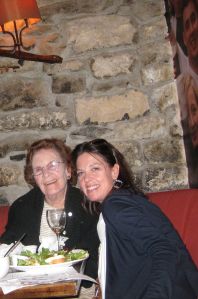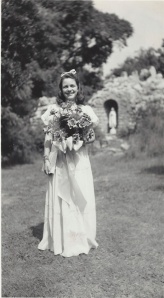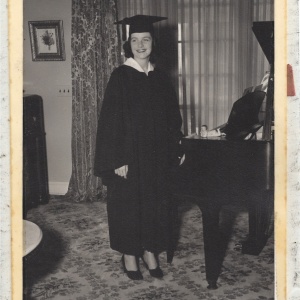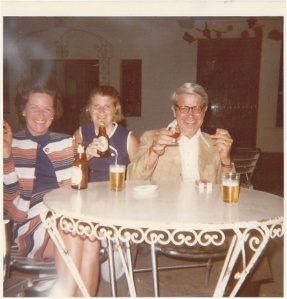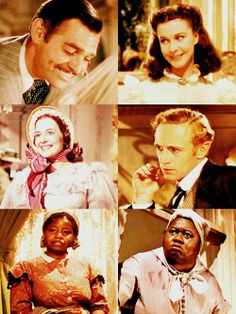
Thomas Cromwell by Hans Holbein
It’s no secret that I am not fan of Hilary Mantel’s take on Thomas Cromwell. He is a big player in my novel, Mine Own Good Daughter, and my research led me to a very different conclusion about Cromwell’s character.
I thought it might interesting to share an excerpt of MOGD to introduce the Cromwell of my novel, based on historical record. In this scene, Sir Thomas More’s beloved daughter, Meg, has been summoned to meet with Thomas Cromwell to discuss her father’s imprisonment in the Tower of London. She recounts the meeting in her journal:
When I entered Cromwell’s darkened chamber, heavy with Flemish tapestries and gold plate scattered about, a wave of sickness washed over me. I swallowed hard and prayed fervently for strength, knowing that weakness now would do my father no good.
The man before me looked differently from the one who visited Chelsea two years ago. He had the same raven hair and beadlike eyes, but sitting behind the immense oaken desk, he appeared more powerful, more menacing.
“Oh, Mistress Roper, it is a true pleasure to see you again.” His voice was reassuring, even kind. “And you are even lovelier than at our last meeting.” He stood from behind his desk, and did not take his eyes off me as he spoke. “Master Rich, you may excuse us.”
“My pleasure, Master Secretary,” he said, with a pronounced bow and a furtive glance at Cromwell, closing the heavy door behind him.
Cromwell sat back down and seemed to get lost in the paperwork before him. I stood most uncomfortably in the awkward silence. Engrossed in a document, he cleared his throat and said, “I know these past weeks have been especially difficult for you and your family.” He glanced up and seemed perturbed to see me still standing. “Please, sit.”
I took a seat in the ornate French chair facing his desk. He began again to go through his papers. My nerves were wrought, and yet there was nothing I could do but sit patiently.
After what seemed to an eternity, he raised his eyes to me. “I have asked you to come this long way because I wish to help you.”
“I thank you for your concern for my father,” I said. He looked at me for a length of time, how long I cannot say, but surely long enough for me to again feel uncomfortable.
“Yes, your father,” he said with a sigh, as if that was a subject of frustration. “There are many fine things that can be said of your father. But to my mind, you are by far his finest achievement.” He rose to walk towards the small leaded window at the far side of the room. It was hot and I hoped perhaps he might open the widow to let some fresh air into the stifling room, but he only looked out upon the river below.
“I have always believed that women should have the opportunity to learn, and I think you are an example of the virtue that education breeds. Some have said, many in the clergy, that education breeds wickedness in women.” He turned around, his small dark eyes, like polished coal, daring me. “What say you about that, Mistress Roper?”
All of this had nothing to do with my father and I had to force myself to keep the frustration and contempt from my voice. “I think it must be men of very little intellect who would think that women should not be educated. Perhaps they fear a learned woman pointing out their ignorance.”
I had said more than I wished and stopped myself from going on. He assured me that I should not be afraid to speak my mind for that was why he called me thus.
“Well, then, Master Cromwell, if I may speak my mind, I must be truthful that my thoughts are preoccupied with the reason you have summoned me here. I am certainly most flattered that you would care to hear my thoughts on the erudition of women, but I believe the reason you have asked me here today is to discuss my father’s circumstances?”
“Oh, yes, Mistress Roper, of course, of course. You do not wish to dilly-dally with high-minded discussions with me while your father rots away in the Tower.” At that crude comment, I winced and his face changed and became softer. “Oh, forgive me for sounding flippant. I can assure you that I am anything but flippant when it comes to the fate of your father. We both share the same desire. Believe me, I wish nothing more than to see your father go free.”
He began turning the strange blue ring on his thick forefinger and said nothing further. Again, the silence grew uncomfortable and I felt the need to say something, anything.
“I am most grateful for your consideration, Master Cromwell. I simply wish to know how I can be of help.”
“I am glad to hear it, Meg,” he said, a hint of a smile flashed across his broad face. I was shocked by his familiar use of my name, but was in no position to protest, as he knew well.
“I desire that you work with me to convince your father to sign the Oath,” he said, as if it were the easiest thing in the world.
“I have tried to bring his mind to that point on numerous occasions, but I see no sign of his reversal. He refuses to tell me why he will not sign the Oath. He says it is a matter he will speak of only to the King himself.”
“You know, Meg, that I have the King’s ear. With one word I can make things better for your father, yes?” I nodded my head in agreement. “So I will get you permission to visit your father in the Tower, but you will use your time there to make him see what he must do.”
“I shall do all in my power,” I said without thinking of the consequence, so desperate to see father at any cost.
“I am pleased to hear it,” he said, striding over to his desk. “Since your father refuses to do anything to help your family’s situation, perhaps you will.” He shuffled through a number of papers, taking his time to look over each one. “Ah, yes, here it is.”
He walked from behind his desk slowly and placed an ivory sheet in front of me. It took me only a moment to realize the parchment, crowded with uneven signatures, was the Oath.
“You will sign here.” He pointed with his meaty finger, stained with black ink. I was taken aback and angry by his unexpected and direct challenge.
“Why would anyone wish to know my opinion? I am but a woman and even then, not of nobility. It matters not what I think.” I looked at him directly, my anger giving me more courage than I truly possessed.
“Meg, please do not insult me with your humility. It is said you are the most learned woman in all of England. His Majesty himself has asked where you stand on the matter.”
I felt trapped, like a bird caught in the thicket, and I saw no way out of the suffocating room.
“You must convince your father to sign this Oath. Do you not think it would have more weight if you yourself sign?” I could not speak but stared directly into Cromwell’s cold black eyes with a fury that I did not know I was capable of.
“You have tricked me, Master Secretary,” I said, unable to contain the scorn in my voice.
“Meg, do not be angry with me. Trust that I am trying to protect you,” he said, sounding sincere. “There are those who wish to topple not only your father, but your entire family.”
“With all due respect, Master Secretary, I will leave the protection of my family to my husband.”
“Your husband,” he said, the strange smile returning to his face. “He is no match for me — or for you, for that matter. I have seen the way he waffles in Parliament, how he used your father’s position for his advancement. I have been sickened by his conduct at court . . .” He stopped. What did he mean? But I had little time to wonder for he leaned in close to me.
“Did you tell him of our meeting?” I was uncomfortable with his closeness; with his breath on my face, with his questions.
“Of course he knows that I have come to meet with you. My husband believes you have the best interest of my father in mind. I am sorry to hear you speak so ill of him.”
He, mercifully, pulled away. “Oh, I harbor no ill will toward Roper. I am a plain-spoken man and I am sorry if I have offended you. It was truly not my intention. I simply find it hard to believe that you think a man like Will Roper can offer any protection from the wolves circling your family. Now, I believe you have a decision to make.”
I could not think clearly. With trembling hand, I took the quill and signed my name, all the while asking for God’s mercy.
“And now, you will meet regularly with me,” he said, raising one eyebrow. “These matters are not safe to be written of.”
I felt ill and weak. I was now a traitor, colluding with Thomas Cromwell against my father’s conscience.
I cannot recall coming down the stairs to the barge, but I do remember the relief of the strong, cold wind stinging my face and the comforting smile of Dorothy. So glad was I to be away from that man that the roiling Thames caused me no anxiety. The thought of that horrible taste stays with me even now. It is the taste of corruption.
When I returned to Chelsea, Will was waiting in the garden for me. His eyes were full of concern and I felt pity for him. Those people he has so long tried to impress think him a fool. He wished to know all about the meeting. I told him that Cromwell would allow me to see Father. I did not tell him that I signed the Oath.

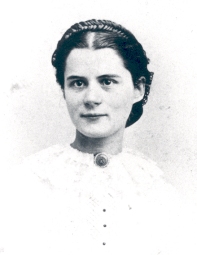
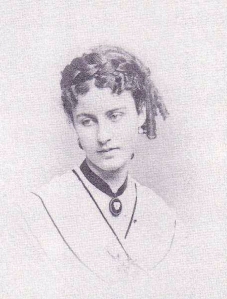

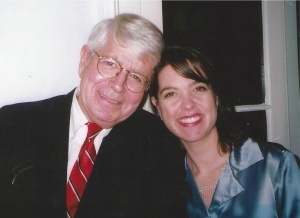

 I am blessed beyond description with generous, caring, wise, hysterically funny and loyal friends. I do not deserve a one of them, but please do not let them know.
I am blessed beyond description with generous, caring, wise, hysterically funny and loyal friends. I do not deserve a one of them, but please do not let them know.





